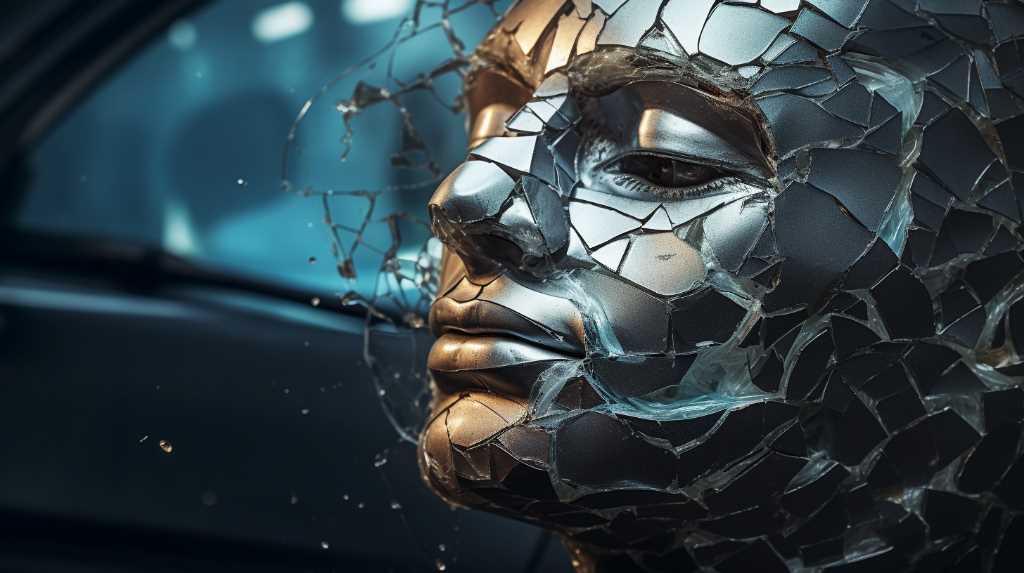
Car crashes can cause serious head injuries, which are a big health problem and can change lives. These injuries include concussions—a short-term brain function issue, more serious problems like contusions and hematomas—where the brain gets bruised or blood clots, and skull fractures that can harm the brain inside.
When the brain shakes inside the head, it can damage a lot of nerves, which is called diffuse axonal injury. These injuries can lead to a traumatic brain injury (TBI), affecting how a person thinks, moves, or feels.
It’s really important to know about these head injuries so doctors can spot them fast and treat them right away. This knowledge also helps make cars safer and can stop these injuries from happening again.
Understanding Concussions
Understanding Concussions
A concussion is a kind of brain injury that often happens during car accidents when the head moves quickly back and forth. This sudden movement can cause the brain to not work properly, which might lead to problems like headaches, feeling confused, being dizzy, having trouble seeing, forgetting things, or even passing out.
To figure out if someone has a concussion, doctors do a full check-up and might use brain scans like MRI or CT scans to make sure there’s no serious damage inside the head.
If you have a concussion, it’s important to rest your brain and body. You should slowly start doing your usual activities again only when you feel better. It’s really important to catch a concussion early and treat it right to avoid long-term problems and to help the healing process.
Contusions and Hematomas
Car crashes can cause serious brain injuries, not just concussions. These injuries include contusions and hematomas.
A contusion is when brain tissue gets bruised and hurt because of the hit or the quick stop during a crash. This can make the brain swell and blood to gather inside the brain, which can increase pressure and lead to more damage.
Hematomas are spots where blood has pooled up inside the brain tissue or around the brain. These can be very dangerous and can cause big health problems fast, so it’s important to get medical help right away.
Doctors may need to perform surgery or take other steps to lower the pressure inside the skull.
Skull Fractures Explained
Many car accident victims suffer from skull fractures, which occur when the impact causes a break in the cranial bone. These fractures can be classified based on their severity and presentation:
- Linear fractures are characterized by a thin break without bone displacement.
- Depressed fractures involve a portion of the skull being sunken in from the trauma.
- Basilar fractures impact the base of the skull, often presenting with cerebrospinal fluid leakage and potential cranial nerve deficits.
Prompt diagnosis via imaging, typically by computed tomography (CT), is imperative to assess the extent of the injury.
Management can range from conservative treatment for simple fractures to surgical intervention for complex or compound fractures, with the aim to prevent intracranial complications such as hematomas, brain injury, or infection.
Diffuse Axonal Injuries
When people are in car crashes, they can get a kind of brain injury called a diffuse axonal injury (DAI). This happens when the head moves sharply and quickly, causing nerve fibers in the brain to rip apart.
This damage can mess up how brain signals are sent, leading to different brain problems. For example, someone with DAI might feel confused for a short time or could even be in a coma for a long while. The injury also starts a harmful chain reaction inside the brain that can make the damage worse as time passes.
Because of this, a person with DAI might find it hard to think clearly, move smoothly, or control their emotions later on. These troubles are because the injury affects the parts of the brain that let nerves communicate with each other.
Traumatic Brain Injury Effects
Car crashes can cause traumatic brain injuries (TBIs), which have a wide range of effects. Some people might have mild problems like headaches, feeling dizzy, or being confused. These issues can often get better with the right medical care.
But, if the injury is more severe, a person could have long-lasting problems. Examples include forgetting things, having trouble focusing, or feeling very moody. In the worst cases, a person might develop serious conditions like epilepsy, struggle with planning and decision-making, or have difficulty with movement.
TBIs can also deeply affect someone’s emotions, sometimes causing depression, anxiety, or even changes in personality. The worse the injury, the more serious and lasting the problems can be.
That’s why it’s critical to get medical help fast after a head injury.
Conclusion
Head injuries from car accidents, such as concussions, bruises inside the brain (contusions), blood clots (hematomas), broken skulls, and injuries that stretch and tear brain cells (diffuse axonal injuries), are serious health issues. These injuries can be minor or very serious, and they might affect a person’s thinking, feelings, and body for a long time.
It’s important to understand how these injuries happen, how to treat them, and how to prevent them. We need more research and better education to help people who suffer from brain injuries get better.